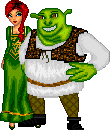It has been argued that all genre texts promote a set of values related to the contexts in which they are produced. How far do you agree?
Agree:
Sex=death is the ideology promoted in films like “Psycho” (1960, Alfred Hitchcock), “Halloween” (1978, John Carpenter) where both the female characters who engage in sexual intercourse are punished by being killed.
Mothers are crazy/un reliable is another ideology promoted in films like “Psycho” (1960, Alfred Hitchcock), “Friday the 13th” (1980, Sean S Cunningham) where it is the mother either mentally or physically killing the victims. This helps reinforce misogyny as the audience are position to dislike this women. Furthermore in early slasher, women are subordinate to men therefore the patriarchy is reinforced because even though the final girl exists she still relies on the help of a man.
Family values= as in Texas Chainsaw Massacre (1974, Tobe Hooper) there is a scene where the family sit around the table to promote how family is important and that they should eat together.
Hypodermic model:
♥ audiences pick up the dominant reading
♥ audiences are passive
Disagree:
Uses and gratification theory:
Audience watch films for different reasons
Audience are active
There is no dominant reading- David Morley
Scream- relies on active audience that have knowledge of the previous slasher films like Prom Date, Psycho, Texas Chainsaw Massacre
Sunday, May 27, 2007
Subscribe to:
Post Comments (Atom)



1 comment:
An Ok start with some key points included.
Still needs more upfront reference to the ZEITGEIST and how popular culture/texts reflect this. (white flight in the 70s, fear of the other, unreliable authority figures, family breakdown, etc.)
Read the two essays I gave you on Halloween and slasher films again to help you here ('transgression', 'family', I think).
And also for 'against'...genre texts also work according to generic features/expectations which may operate outside of the culturally/historically specific context.
Post a Comment